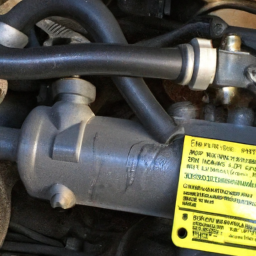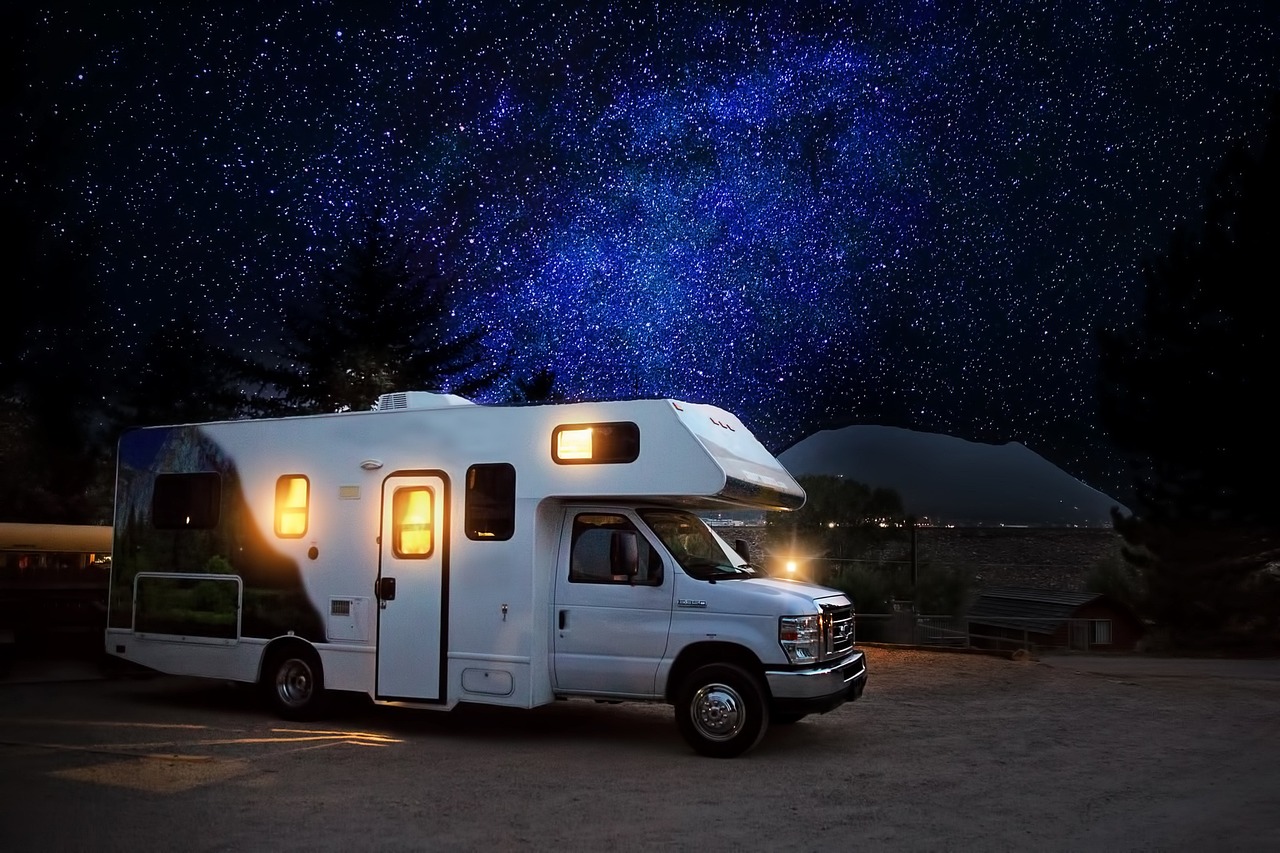
Whether you’re a seasoned motorhome owner or a first-time renter, it’s crucial to prioritize a few key checks before hitting the road. From ensuring the engine is in top shape to inspecting the interior for potential leaks or damages, taking the time to conduct these essential motorhome checks can save you from unforeseen issues and make your journey as smooth and stress-free as possible. So, before you embark on your next adventure, don’t forget to give your motorhome a thorough once-over to guarantee a memorable and trouble-free trip.
Understanding the Basics of Motorhome Maintenance
Owning a motorhome is an exciting and fulfilling experience. It allows you the freedom to travel and explore new destinations while having all the comforts of home. However, just like any other vehicle, motorhomes require regular maintenance to ensure they remain in optimal condition and to extend their lifespan. In this article, we will delve into the importance of routine checks for safety and functionality, as well as provide a comprehensive guide on the key areas to inspect and maintain in your motorhome.
Checking the Mechanical Component
The mechanical component of your motorhome is crucial for its overall performance and safety. Regular inspections of the brakes and suspension are essential to ensure they are in good working order. Faulty brakes can lead to accidents and compromised safety, while worn-out suspension can result in an uncomfortable and unstable ride.
In addition, checking engine oils and coolants is vital to keep your motorhome’s engine running smoothly. Over time, these fluids can become contaminated or depleted, leading to engine damage or overheating. Regularly replacing the air filter, fuel filter, and spark plugs will also help to maintain optimum fuel efficiency and prevent potential engine issues.
Don’t forget to verify the condition of belts and hoses as well. Over time, these components can become worn or damaged, leading to engine malfunctions and even breakdowns. Lastly, take a thorough look at the chassis for any signs of rust or damage that could compromise the structural integrity of your motorhome.
Inspecting the Electrical System
The electrical system in your motorhome plays a crucial role in providing power to various appliances and ensuring your safety while on the road. Checking the health of the batteries is essential to prevent unexpected power failures. Clean the battery terminals and ensure they are securely connected. If you notice any signs of corrosion or damage, it may be time to replace the batteries.
Inspect all lighting systems, including headlights, taillights, brake lights, and turn signals. Replace any bulbs that are burned out or dim. Don’t forget to test all interior lights as well. Adequate lighting is not only important for your safety, but it also creates a comfortable and functional living space inside your motorhome.
Verify the functionality of the generator by starting it up and letting it run for a while. This will ensure it is in good working order and can provide the necessary power when needed. Keep in mind that generators may require regular maintenance, such as oil changes and filter replacements, so refer to your owner’s manual for specific instructions.
Propane System Check
The propane system in your motorhome is responsible for powering various appliances, such as the stove, oven, refrigerator, and water heater. It is crucial to check the propane tank for leaks regularly. A propane leak can be extremely dangerous and lead to fires or explosions. Use a propane leak detector or a mixture of soap and water to check for any signs of leakage. If you detect a leak, turn off the propane supply immediately and seek professional assistance.
Make sure to test all propane-fueled appliances to ensure they are working properly. Ignite the stove and oven to verify that the burners and flames are functioning as they should. Check the refrigerator’s cooling ability and keep an eye out for any unusual smells or noises. It is also a good idea to have a carbon monoxide detector installed in your motorhome to detect any potential leaks.
Inspection of the Water System
The water system in your motorhome is responsible for providing clean water for drinking, cooking, and bathing. Regularly checking for leaks in the freshwater, grey, and blackwater tanks is essential to prevent water damage and ensure proper functionality. Inspect all visible connections and pipes to identify any potential sources of leakage.
Ensure the water pump is working by running water through all faucets and showers. Listen for any unusual noises or fluctuations in water pressure. If the pump is not functioning properly, it may need to be repaired or replaced.
It is crucial to inspect the water heater and plumbing as well. Look for any signs of corrosion or damage in the water heater tank and check for leaks around the connections. Test the hot water supply to ensure it is functioning correctly. Inspect all plumbing fixtures, such as sinks, toilets, and showers, for any signs of leaks or clogs.
Eyeing the Roof and Exterior
The roof and exterior of your motorhome are exposed to various weather conditions and need regular inspection to ensure they remain in good condition. Inspect the roof for any cracks, damage, or signs of water leakage. Even a small crack can lead to significant water damage if left untreated. Pay close attention to areas around vents, skylights, and antennas, as these are common areas for leaks to occur.
Check the window and door seals to ensure they are in good condition. Damaged seals can lead to water leakage, drafts, and compromised insulation. Replace any worn or damaged seals to maintain energy efficiency and prevent water damage.
Conduct a thorough condition inspection of the awning, if your motorhome is equipped with one. Check for any tears, loose parts, or malfunctions. Repair or replace any damaged components to ensure the awning functions properly and provides shade and protection when needed.
Interior Checks and Cleaning
The interior of your motorhome is where you spend most of your time, so regular checks and cleaning are important for comfort and functionality. Inspect all appliances and furniture for wear and tear. Check for loose screws, hinges, or any signs of damage. Properly functioning appliances and furniture not only enhance your motorhome experience but also prevent potential accidents or hazards.
Verify the proper operation of the heating and cooling system. Turn on the air conditioner and check for cool air output. Test the furnace or heating system to ensure it is providing adequate warmth. It is crucial to maintain a comfortable temperature inside your motorhome, especially during extreme weather conditions.
Check for signs of pests, such as rodents or insects. Look for droppings, chewed wires, or any other indications of infestation. Pests can cause significant damage to your motorhome’s interior and compromise your safety and health. Take necessary steps, like implementing pest control measures and sealing any potential entry points, to prevent infestations.
Inspecting Tires and Wheels
The tires and wheels of your motorhome are crucial for safe and smooth travels. Regularly check the tire pressure and tread depth to ensure they are within the recommended range. Underinflated tires can affect fuel efficiency and reduce overall handling, while overinflated tires can lead to blowouts. Insufficient tread depth can result in poor traction and increased braking distance, especially on wet or slippery surfaces.
Look for signs of wear or damage on the tires, such as cracks, bulges, or punctures. Any indication of tire damage should be addressed immediately to prevent accidents or tire failures. Don’t forget to inspect the spare tire as well, as it may be needed in case of emergencies.
Ensure wheel bearings are in good condition by checking for any unusual noises or vibrations while driving. Faulty wheel bearings can lead to wheel misalignment or even wheel detachment, which can be extremely dangerous. If you notice any issues, have them inspected and repaired by a professional.
Emergency and Safety Equipment Checks
Your motorhome should be equipped with various emergency and safety equipment to ensure your well-being while on the road. Regularly verify the functionality of smoke detectors, carbon monoxide detectors, and propane detectors. Test them according to the manufacturer’s instructions and replace batteries if needed. These detectors are crucial for detecting potential hazards and providing early warnings.
Check all firefighting equipment, such as fire extinguishers, to ensure they are in good working order. Inspect the pressure gauge and check for any signs of damage or expiration. Familiarize yourself with how to use the fire extinguisher in case of emergencies. It is also advisable to keep a fire blanket on board to smother any small flames quickly.
Inspect the first-aid kit to ensure it is fully stocked and up to date. Replace any expired or used items and include essential supplies like bandages, antiseptics, medications, and emergency contact information. A well-prepared first-aid kit can be a lifesaver in case of injuries or medical emergencies.
Conducting a Test Drive
Finally, before setting off on your next adventure, it is important to conduct a thorough test drive. While driving, listen for any unusual noises such as squeaks, rattles, or grinding sounds. These can indicate underlying mechanical issues that need attention. Unusual vibrations or pulling to one side while driving may also indicate problems with the tires or suspension.
During the test drive, ensure all driving systems are functioning properly. Test the brakes to make sure they are responsive and not spongy. Check the steering for any signs of stiffness or lack of responsiveness. Pay attention to the transmission for any issues with shifting gears smoothly.
By conducting a test drive, you can identify any potential problems early on and address them before they become more severe or lead to breakdowns during your travels.
Conclusion
Regular motorhome maintenance is vital for the longevity and optimal performance of your vehicle. By understanding the basics of motorhome maintenance and conducting routine checks, you can ensure the safety, functionality, and comfort of your motorhome. From inspecting the mechanical components to checking the electrical system, propane system, water system, exterior, interior, tires, wheels, emergency equipment, and conducting a test drive, each step is essential in keeping your motorhome in the best possible condition. So, make a maintenance checklist and schedule regular inspections to extend the lifespan of your motorhome and enjoy worry-free adventures on the open road.

